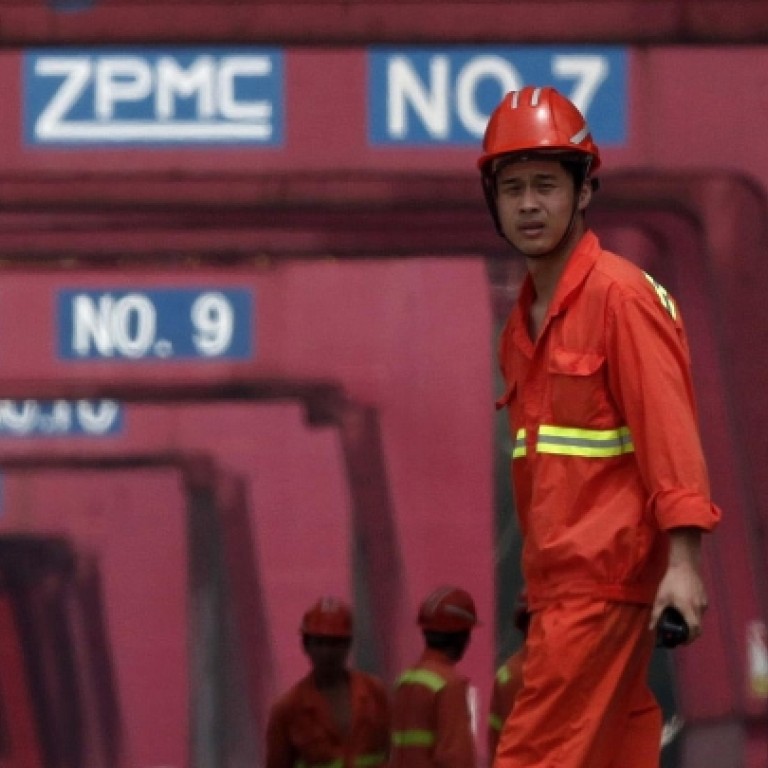
Shanghai port hit by falling container volumes
Decline blamed on weak Western demand, as Hong Kong also suffers fall
Container throughput in Shanghai, the world's busiest port, fell 5.7 per cent last month from May, because of the weak global economy and the decline in mainland manufacturing, analysts said.
In Hong Kong, which has slipped to the world's fourth-busiest container port, behind Shenzhen, container throughput fell 9.1 per cent in the year's first five months from the same period last year - the worst performance since its 14.1 per cent drop in 2009 during the global financial crisis, the Hong Kong Port Development Council said.
Shanghai's container throughput was 2.77 million twenty-foot equivalent units (teu) last month, a year-on-year decrease of 0.06 per cent, according to the website of Shanghai International Port (Group), operator of the city's ports. It was a pullback from container throughput growth in March, April and May, which was in single-digit percentage rates.
"Trade is likely to continue to stay slow, as reflected in the sharply deteriorating New Export Order Index [a component of China's purchasing managers' index], which usually leads container volume by one to three months," said Jefferies analyst Liu Boyong.
Shanghai's weak performance was partly because demand in the United States and Europe was still weak, Liu said.
"The second reason is volume growth is slowing for the longer term. With China's rising labour cost, the outsourcing trend is ending. So it would be normal if in future China's export growth were to be more in line with developed countries like the US, in the low single digits," he said.
Willy Lin Sun-mo, the chairman of the Hong Kong Shippers' Council, said: "China, once the factory of the world, is no longer so. It's a structural problem. Costs in China are going up every day. Workers' wages are rising 20 per cent every year."
Hong Kong's container throughput fell 10.5 per cent year on year to 1.84 million teu in May, extending its double-digit year-on-year declines in February, March and April, the Port Development Council said.
"My gut feeling is that over 60 per cent of the decline in April and May is because of the strike," said Liu. A strike occurred at Kwai Tsing container terminals from March 28 to May 9.

